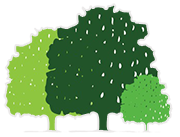School Vision
Parklands Primary School believes in creating a culture of high expectation, collaboration and ambition amongst all members of the school community.
We aim to instil a desire for constant improvement amongst ourselves, staff, governors and children and deliver inspired teaching that encourages positive attitudes towards lifelong learning. We want our children to feel valued and confident as individuals and ensure they feel supported, safe and cared for in our school.
We aim that children leave Parklands Primary School with a clear sense of responsibility and independence and an understanding of the importance of community and how their behaviour impacts upon others. We aim to inspire success in our children by creating rounded individuals who seek out lifelong opportunities to learn in order to be the best they can be.
School Aims
- We value each member of the school community and aim to develop each individual’s potential and remove barriers to learning.
- We aim to ensure that everyone is able to participate fully in school life, making reasonable adjustments wherever possible to accommodate all members of the school community.
- The school aims to encourage positive attitudes towards diversity among staff and pupils to ensure that everyone is treated equally and achieves individual success.
Curriculum Rationale
(What do we want for our children and how will we work together to achieve this?)
At Parklands Primary School we have worked collaboratively to design our unique curriculum which is underpinned by our whole school vision and school aims and personalised to the needs of our school community. The Parklands Curriculum covers the statutory requirements of the The Early Years Foundation Stage Curriculum Foundation Stage 1 and Foundation Stage 2, The National Curriculum (Years 1 to 6) and The Havering Agreed Syllabus (Religious Education), as well as providing authentic and unique learning experiences.
We have established key values for our school, otherwise known as the ‘Curriculum Drivers’. The aim of these are to ‘drive’ the decision making for our curriculum and ‘drive’ teaching and learning. As well as this we use these ‘drivers’ to underpin the development work we undertake in all areas of school life and to ensure our curriculum offer is enriched and personalised to meet the needs of our community and reflects our school location.
Please click on the tabs to view more information.
For further information, please view the full Curriculum Policy.
EYFS Curriculum
Curriculum Intent
At Parklands Primary School our aim is to create a learning environment and build relationships which support, enhance and invite a child’s curiosity, confidence and individual competency to flourish regardless of backgrounds, circumstances or needs. We aim to work collaboratively with parents and carers to encourage independent, enthusiastic learners who thrive and reach their full potential.
It is our intent that children who enter our EYFS begin their lifelong learning journey by developing physically, verbally, cognitively and emotionally whilst also embedding a positive attitude to school and a love of learning.
To ensure children make outstanding progress in Parklands Primary EYFS, it is our intent to take into consideration their starting points and needs of our pupils as they begin their learning journey. Every child has access to a broad, balanced and differentiated curriculum which prepares them for now and for the future in terms of opportunities and experiences. Following personal interests and individual needs, allows us to plan and provide opportunities throughout our EYFS curriculum to support learning and development and achieve their next steps.
Our EYFS curriculum aims to enable our children to be:
- Competent and creative learners; who are curious about the world around them.
- Secure and confident; who enjoy coming to school and learning new skills and knowledge building on their existing learning.
- Skillful communicators; who connect with others through language and play, ensuring that they play in a vocab rich environment.
- It is our intent to ensure that all children will receive the teaching of early reading through systematic, synthetic phonics to learn to read words and simple sentences accurately by the end of Reception.
Curriculum Overviews
